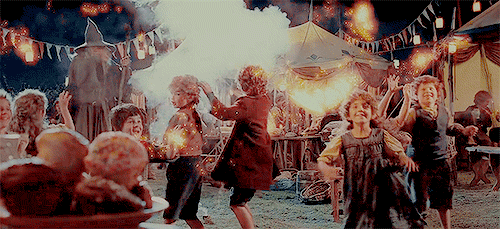Downtime in your games is a great way to allow for great RP moments, shopping or planning the next egg of an adventure.
I recently have had a group go through a whole string of challenging encounters, puzzles and other activities within the Underdark. After escaping there, successfully saving groups of inhabitants, and getting back home (after a fight with Were-bears along the way), the players got home and rejoiced at their safety. When they returned, they seen he city was celebrating its yearly week-long festival, which was mid-way done due to the players spending extra time adventuring.
What I didn't expect however, was on the return of the players, they wanted to visit the carnival section of the festival and spend the entire session there.
This is what reminded me about the importance of downtime, because what followed was a relaxing game (for the players AND me) where the players got to participate in the easier side of the game - roleplaying together and causing light and benign nonsense at the festival. For example, showing magic off to poorer districts (who rarely see it), feeding the homeless and outsmarting the carnival games with creative use of spell casting.
So - what should you put in it?
I've recently put more thought into downtime - even after running games for 3-4 years, most of the games have been published ones, or very short scenarios (1-3 games). Especially as I started running Call of Cthulhu long before I ever ran D&D games.
After running ongoing longer campaigns, I've discovered what I normally put into my downtime to give players that stress-break or character development they may be looking for.
The things I add or by no means exhaustive, and only in writing this post have I really put into thought the exact reasons I've been working with downtime more.
For me, I tend to integrate downtime to:
- Provide players with RP moments to build their characters and their relationships with NPCs or each other. This can help players really learn more about how they want to play their character, and can inform progression choices later in the game. For example, the group Paladin from one of my groups in D&D has decided to multi class into sorcerer after some mystical downtime conversations that sparked his interest in spell casting. Similarly, a Call of Cthulhu player decided to drive their player half-mad to learn more about the Eldritch Horrors they encountered.
- Encourage encounters or choices that provide a lighter "fun" to the game, almost always without the risk of major negative consequences. This often gives players a break from the (sometimes constant) stress they'll go through during any game. D&D, Call of Cthulhu, Kult - all can have heavy subject themes or prolonged times of combat and downtime can provide that 'break' for players (and their characters) to collect themselves. These encounters could be fun conversations, or they could be silly hunting trips that break up a challenging journey. Regardless of the encounter, I aim to make them light and silly.
- Time to learn more about the objective is tool I use during downtime. A travelling messenger may arrive, a rumour at the speak-easy or tavern, maybe even other downtime activities expose a new thread that reveals slightly more information. Providing extra pieces to your puzzle during downtime can be a good way to both give players a more 'relaxed' session, but without holding the story up for a session. Recently, during downtime for my players, they used their downtime to entertain the homeless in a city they were exploring. While this allowed for light hearted and fun exchanges, it has increased their favour with the homeless group they met before, who were previously hostile to them. This made the next leg of their journey a lot easier - a benefit for some good decisions during downtime.
Things I don't do
- Making sure downtime does not drag on. I've had a couple of games where downtime felt goal-less. This would be fine if the players were having fun, but its always worth being aware when people start to disengage from the events that are happening.
- Lastly, if adds no new knowledge is shared during downtime, or there are no fun or unique interactions for the players, I tend to keep the downtime brief. Offering fun little RP moments is enough to have an engaging downtime period with little work. Recently I had a downtime period for my D&D players at a campfire where they got to hunt special fauna in the new region they got to. At the end of this, they had learned many things about how the areas worked, and how some of the fauna interacted with their environments, giving them an edge when exploring. It was an impromptu encounter that rewarded players with new information. Without this, the campfire resting could have been pretty boring - unless that's just me that feels this way?






Comments
Post a Comment
Thanks for leaving a comment!